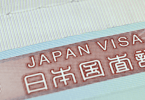MAUI, Hawaii – Maui, rated as “Best Island in the World” by the readers of Conde Nast Traveler for 13 years, is working to keep its beaches beautiful, through a “Butts off the Beach” awareness campaign to prevent cigarette butt litter.
The campaign includes ads and public service announcements in the local media. Maui retailers are hosting countertop displays that dispense free pocket ashtrays that can store extinguished cigarette butts until they can be disposed of properly.
“Butts off the Beach” was launched in 2001 by Pacific Whale Foundation, a Maui-based nonprofit organization dedicated to promoting appreciation, understanding and protection of whales, dolphins, coral reefs and the ocean.
In early 2008, the program received additional funding by the Hawaii Tourism Authority and Maui County’s Office of Economic Development in honor of the International Year of the Reef. Community Work Day, a Maui nonprofit group dedicated to litter prevention, also provided assistance.
“Cigarette butts are the most prevalent form of marine debris on earth, accounting for one in every five items collected during coastal clean-ups,” said Brooke Porter, Conservation Director at Pacific Whale Foundation. “It is estimated that over 4.5 trillion cigarette butts are littered worldwide each year.”
Pacific Whale Foundation interviewed cigarette smokers about why they toss butts on the ground. “Many smokers have the misconception that cigarette butts biodegrade,” Porter commented. “Smokers also said they did not have a convenient way to carry cigarette butts off the beach.”
“Our campaign teaches smokers that cigarette butts are made of long-lasting materials including cellulose acetate, a form of plastic, which can take up to 25 years to decompose,” Porter noted.
Cigarette butts can contain over 165 chemicals, such as cadmium, lead and arsenic, which can leach into the marine environment within an hour of contact with water. Butts can poison wildlife, or even children, when accidentally ingested. When wildlife ingests cigarette butts or other forms of plastic, it can block the digestive tract or fill the stomach, resulting in malnutrition or starvation.
“We address the convenience issue by providing pocket ashtrays, made from re-purposed film canisters, partly filled with sand and decorated with colorful “Butts off the Beach” stickers,” Porter noted. “These ashtrays are distributed free to smokers, in eye-catching dispensers placed at retail shops and restaurants.”
“We greatly appreciate this coordinated effort led by Pacific Whale Foundation to raise awareness about the detrimental impacts of cigarette litter and provide a tool for people to properly and easily dispose of cigarette butts,” commented Maui County’s Environmental Coordinator, Kuhea Paraculles.
WHAT TO TAKE AWAY FROM THIS ARTICLE:
- “We greatly appreciate this coordinated effort led by Pacific Whale Foundation to raise awareness about the detrimental impacts of cigarette litter and provide a tool for people to properly and easily dispose of cigarette butts,”.
- When wildlife ingests cigarette butts or other forms of plastic, it can block the digestive tract or fill the stomach, resulting in malnutrition or starvation.
- In early 2008, the program received additional funding by the Hawaii Tourism Authority and Maui County’s Office of Economic Development in honor of the International Year of the Reef.






















